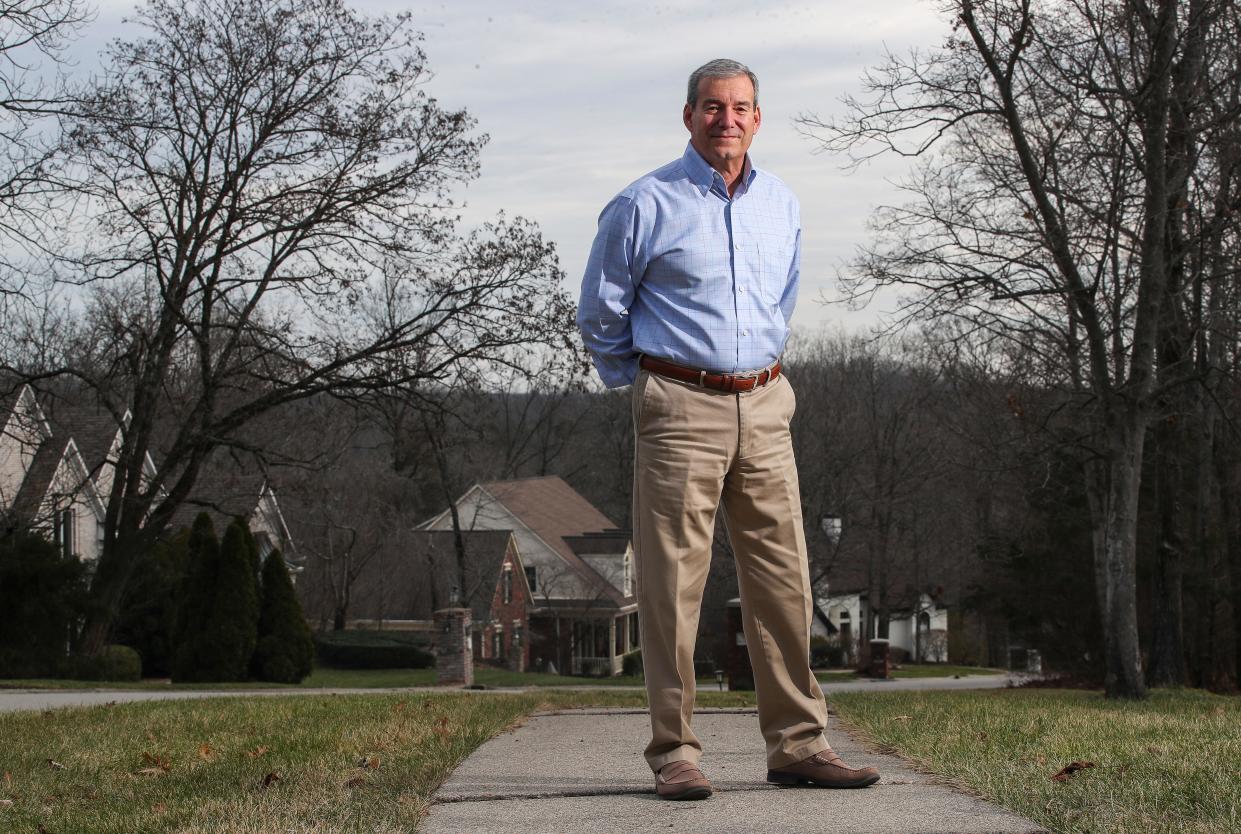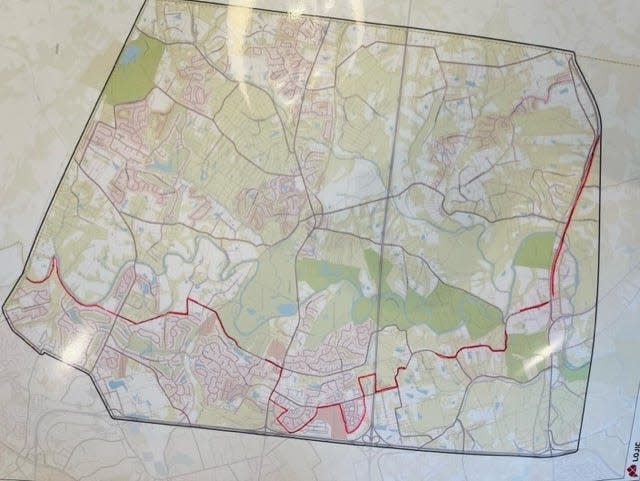Louisville areas primed to take advantage of changing annexation, home-rule city laws

The year 2024 means Jefferson County's annexation rules will be changing. Starting this July, residents living outside Louisville's Urban Core will be able to decide whether they want to form their own city — or join another one — regardless of the Louisville Metro Council's opinion.
This power was given to residents through a bill that passed at the end of the 2022 Kentucky legislative session. That law, passed as House Bill 314, allows new annexations or new cities with at least 6,000 residents within Louisville Metro, but outside the Urban Service District, to occur if 66.6% of voters in the qualified area sign a petition.
Proponents of annexing into an already-established home-rule city — or creating a new one — may elect to pay additional taxes to expand or create services including their own police and fire agencies, city councils, parks, sanitation and recycling.
If neighborhoods choose to annex, it does not mean they are leaving Louisville Metro. Annexed neighborhoods would still pay taxes to Louisville, and to whatever home-rule city they are a part of, said Councilman Kevin Kramer.
However, Louisville would lose insurance premium tax revenue from those residents. It could also lose state money for roads, which would instead be given to the individual home-rule cities.
And under U.S. Census rules, Louisville Metro can't count the residents living in incorporated cities within Jefferson County as part of its overall population.
Still, proponents of annexations and new home-rule cities say it would ultimately save Louisville money. Those against — often Metro Council Democrats — argue the opposite, saying countywide services like the police, jail, library and health department could be hurt by the loss of insurance tax revenue.
They've instead encouraged people to take advantage of creating their own service districts.
But as 2024 approaches, at least two areas of Louisville are gearing up for the annexation law to go into effect.
Silver Oaks residents 'antsy' to join Jeffersontown
The Silver Oaks neighborhood, located in District 20 and represented by Councilman Stuart Benson, filed a petition to annex into Jeffersontown in December 2022.
"As of today, (Jeffersontown) has taken no action on our request," said Keith Hyatt, president of the Silver Oaks homeowner's association.
The city is waiting until July 15, 2024 — when the new rules go into effect — to continue the annexation process, said Fred Fischer, Jeffersontown's city attorney.
"Right now, we're still under (rules) where we need permission from Metro Louisville to bring anyone in," he said. "So we haven't started or initiated any annexations including Silver Oaks."
Kramer, whose district borders Jeffersontown, does not believe the city is waiting because Metro Louisville would reject the request to annex. Requests are typically granted, despite some council members frequently opposing annexations.
In 2022, every request to annex that was brought before the Louisville Metro Council passed, Council President Markus Winkler said. This included another annexation into Jeffersontown: the Brookhurst subdivision.
Ultimately, Fischer is concerned there might be more changes to annexation rules in the upcoming legislative session after the HB 314 Commission presents its ideas to the General Assembly.
"I wouldn't want to initiate something that we're going to have to change down the line," he said.
Benson, Silver Oaks residents and members of Jeffersontown have all expressed support for the annexation. The petition to annex had 80% of residents voting in favor of joining Jeffersontown, Hyatt said.
But a year since filing the petition, some Silver Oaks residents are beginning to get "antsy," Hyatt said. All are looking toward July, when the new rules go into effect, which Hyatt hopes will "streamline" the process.
A new home-rule city? The journey to establish 'Eastwood'
Creating a new home-rule city has not been allowed since the 2003 city-county merger, but residents in the East End are planning to take advantage of a shift in those rules in 2024.
They've been tossing around the idea for years, said Bob Federico, outgoing chairman of the Eastwood Village Council. The idea was sparked by discontent as new developments shifted the landscape of the area east of the Gene Snyder Freeway.
"Every time a farmer passed away and their children didn't want the farm, these farms became subdivisions," Federico said. "No one ever addressed the traffic. Nobody increased the road infrastructure. Nobody wanted to look at the impacts on safety."
By becoming a home-rule city, he hopes the area will have more of a say in planning and zoning matters.
"So it just gives us a seat at the table, cards in hand, money to play with," Federico said. "Whereas today, we have nothing."
Supporters of the new home-rule city, which would be called Eastwood, also want the ability to fix their own road problems and establish a police force. The city would have its own taxes levied onto residents to pay for the services it hopes to provide.

"Bottom line, establishing a city offers more opportunities and greater authority," Kramer said. "Previous statute would have allowed for providing services, but not creating a new city."
Eastwood would stretch across districts represented by Metro Council members Anthony Piagentini, Benson and Kramer. All are Republicans and have expressed support for the idea.
Still, there is a long way to go before the city can be officially established. Residents will have to create a petition and collect signatures. It would then go to the Louisville Metro Council, which would be required to approve it if more than 66% of registered voters sign in support. If the petition receives less than 66%, Metro Council could deny it.
"The objective is to try and be ready by July," Federico said. "I think that might be a stretch just because getting all the signatures is going to be interesting."
From there the plan would go to court, where supporters would to present the proposed map, statements about services and surveys, among other requirements, he said.
Federico is leaving his role as village council chairman to focus on drumming up support for Eastwood, and he plans to host meetings and launch door-knocking and mail campaigns over the next several months.
"It's a daunting task," he said. "It's gonna be a ton of work. It's going to involve a lot of people. It's scary. But at the same time, it's exciting."
Reach reporter Eleanor McCrary at EMcCrary@courier-journal.com or at @ellie_mccrary on X, formerly known as Twitter.
This article originally appeared on Louisville Courier Journal: Louisville areas interested in new annexation, home-rule laws

